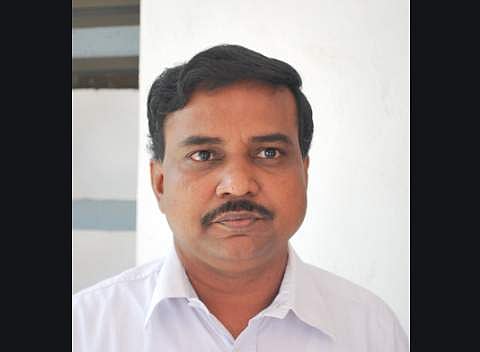

Online teaching during a pandemic is discriminatory - Education activist Prince Gajendra Babu states blatantly in his letter to the Ministry of Home Affairs. His organisation, the State Platform for Common School System – Tamil Nadu has submitted similar letters to the MHRD, UGC, AICTE and the TN CM as well. In his letter, the activist lists the ways in which online classes are discriminatory to students and criticised online courses as being beneficial only to corporates and not for students.
Babu writes that education is a social activity and learning is not possible without human interaction and that it cannot be confined to text books or study material or online teaching. "Curriculum is an educational framework and fosters educational objectives to be achieved by the respective educational programmes, and consequently, knowledge and skills to be attained by the learners. Online learning will not give such an ambience and amplitude that are essential to achieve the educational attainments of the learners," he said.
So far, the critics of online learning have pointed out that in a country like India where students from all social and economic backgrounds are impacted by the pandemic, not everyone would have access to the internet. A survey by the University of Hyderabad also showed that 18 percent of their student population doesn't even have access to electricity as they reside in extremely remote rural areas. However, in his arguments, Babu says that the very concept of online teaching during this time is discriminatory, "Online Courses are purely a market driven concept to facilitate the investor earn maximum profit with little investment. An institution established in any part of the world will enroll students for the online courses all over the world. Without engaging local teacher, without spending any money in a respective country an institution can earn as much as possible by mere advertisement."
He believes that dependence on online learning services would result in internal brain drain and decreased quality and reputation and providing market access to education will lead to exploitation of students in countries like India. "The offer of free online courses during the pandemic is nothing but bait, waiting for a larger catch later. The online learning should be considered as simply enriching the regular classroom learning process, but certainly should not be considered as an alternate, and examinations should not be conducted exclusively based on online learning," the activist said.
The education activist also pointed out that during a pandemic even students have to take care of themselves and the others around them and that can be stressful during a time like this. "Youth especially students volunteer their service individually and for various Government agencies / local bodies as part of disaster management activity to serve the poor and needy. Will not the socio–economic and psychosocial conditions of students affect them psychologically? Should we not take into account the influence of social psychology on the individual?" he asks.
He also pointed out that many students' parents would also be working from home and it would be difficult for families to provide their child with a separate device and internet connection. "How will the children of the first generation college entrants learn through online without any support for helping them to understand the concept that they study. For all such students it will serve the only purpose of getting attendance when they enter the online portal for learning. The MHA, AICTE, UGC and States and Union Territories have failed to take note of all these issues," the general secretary of the Platform feels.
He also threw light on the difficulties faces by the physically challenged, those living in remotes places, inhospitable terrains and even hostels. He also said that during this time when we all have to have good immune systems, psychological stress could quite easily affect immunity. "There are migrant workers, there are daily wage earners, socially oppressed, economically marginalised, people who are deliberately stigmatised and suffer psychologically. The pandemic has wreaked havoc on their lives. The families are struggling for survival. The students belonging to these families are helpless, as many of them have no access to online connectivity because of lack of smart devices and mobile data subscriptions. For no mistake on their part, they are made to face the challenge of learning and appearing for exams on par with the affluent sections of the society, which is a blatant state sponsored discrimination," Babu tells us.
Taking these factors into consideration, the activists suggested that the colleges should conduct refresher or crash classes for students when the lockdown is over and the semester exams should be conducted in order to provide an equal level playing field for all students.
"Internal assessment, practical examination, project work and theory examination are all part of evaluation. Nothing can be brushed aside or taken for granted. These learning evaluations shall not be allowed to be conducted online. Those institutions which have already claimed to have completed these evaluations online should be asked to make them null and void, and conduct them as per the regular curricular framework. Materials (audio/video/text) made available online can only play a supportive role and cannot substitute regular classroom learning," he demanded.
Babu pointed out that extraordinary circumstances demand extraordinary measures and every such measure should be in accordance with the values and provisions of the Constitution of India and should have a humane approach and provide a level playing field for all.
